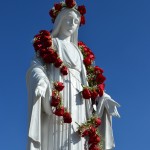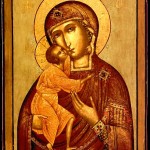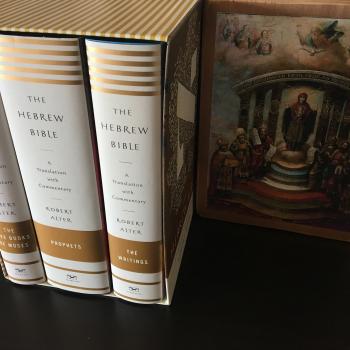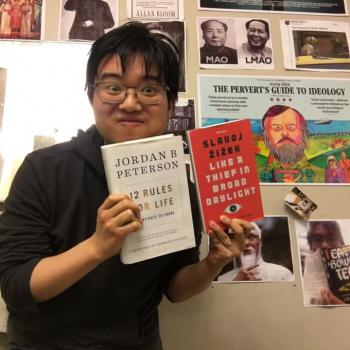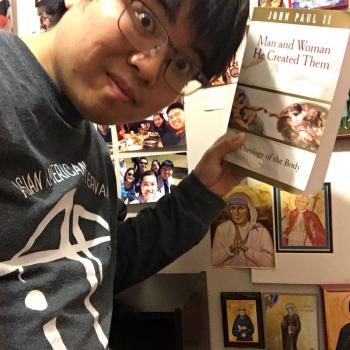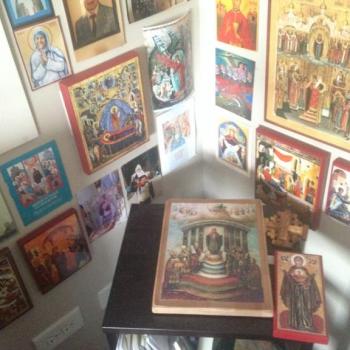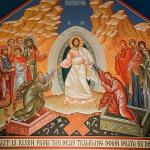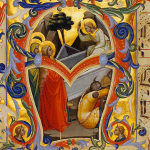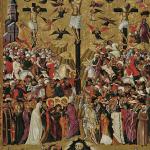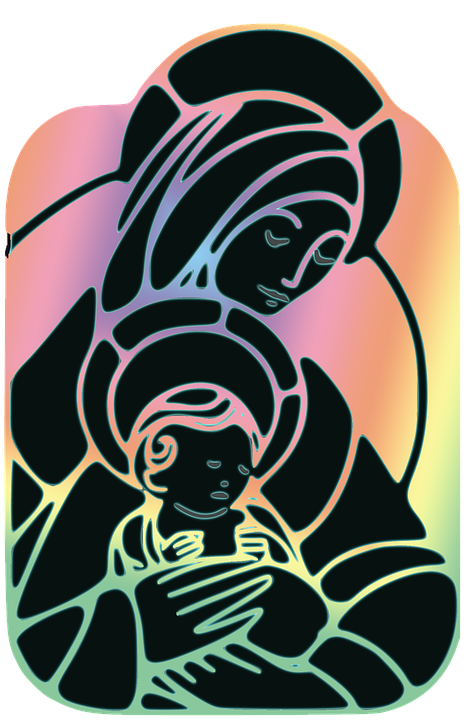
It is a truism within Chinese evangelical circles that whatever is not its brand of ‘conservatism’ is ‘liberal.’ ‘Conservatism’ among Chinese evangelicals usually refers to apolitical congregations, the inerrancy of every punctuation mark of the Bible, premillennial dispensationalism of the kind where true Christians get raptured into heaven before the Great Tribulation, the urgency of global missions as long as it’s someone else’s calling, and the sovereignty of the God whose will is always to make sure you are middle class. Sometimes a bone or two about Confucianism gets thrown in, but the real reason all of this falls under the rubric of ‘Chinese evangelicalism’ is because white people always seemed to be a bit more open minded about these principles than the aunties and uncles in our churches – and even when they weren’t, at least they could appear to be reasonable about it. In contrast, many a ‘Chinese evangelical’ has lived up to their own stereotypes of themselves as very ‘direct’: what’s right is right, what’s wrong is wrong, and there will be no diplomatic wiggling like those white people of our imagination do. In this way, ‘Catholics,’ ‘charismatics,’ and even ‘conservatives’ who try to mobilize churches to fight against, say, same-sex marriage or transgender rights are as ‘liberal’ as Schleiermacher, Harnack, and Tillich: they are pushing Christians engage a world beyond their churches, they add to the Bible, they don’t take the Rapture seriously, and they might even be white.
And thus, while every other person on earth might consider a devotion to the Theotokos as ‘conservative’ or perhaps even ‘orthodox,’ the Chinese evangelicalism in which I had not only my spiritual, but also intellectual formation would scoff at it as ‘liberal.’ Apostolic tradition and the early dating of the Akathist and ‘Beneath your compassion’ be damned, it’s not in the Bible, and we all know that heaven and earth will pass away, but not one jot or tittle of the Bible will.
The Catholic high school I attended simply added to my fundamentalist delusions, with a feminist twist. There were many things I learned at that school, but one of the texts that had the most impact on me was James Joyce’s Dubliners, a collection of short stories in which Joyce famously tries to ‘simulate’ the mass, transforming everyday reality into art – ‘liberalism’ at its finest, really. The English teacher with whom we read Dubliners was very good, which was very important because Joyce’s stories, on first reading, don’t seem to have plots or make any sense. He taught us to look at all sides of the stories, closely reading not only the characters, but also how the words brought out the small details of the scenes where Joyce would place the clues of what was really going on.
And then it came time to write the essay. The teacher told us that we could write on any theme that stuck out in Dubliners. From a close reading of the text, it somehow came to me that it was the female characters in Dubliners who were important – Paula Mooney in ‘The Boarding House,’ Maria in ‘Clay,’ Greta Conroy in ‘The Dead.’ It seemed to me that each of these women were following the thematic introduction laid out by Joyce in the first story, ‘The Sisters,’ a nasty little story about an incompetent priest in which Joyce basically calls out Dubliners for their ‘paralysis’ that sounded ‘like the word gnomon in the Euclid and the word simony in the Catechism’: they were, in short, missing a part of their agency, making themselves out to be whores (as Paula Mooney was insinuated to be), witches (as Maria is portrayed), or wives (like Greta Conroy who is still thinking about her past deceased love of her youth). The only woman in the whole collection who actually seemed to not give a damn about anyone or anything was Miss Ivors, also in the dead, who whispers to the protagonist Gabriel Conroy while dancing with him that he’s a sellout as far as his Irishness is concerned. Miss Ivors, I argued, was a woman: she had zest, she had guts, she knew who she was, she was independent, and she was not afraid to be herself. I wrote this all up in several drafts, and by the end, the teacher commented that he could not believe that he was reading a ‘feminist analysis of Joyce from a fourteen-year-old boy.’ I had no idea what he was talking about – I certainly didn’t feel very feminist – as I had simply hoped to have read the text correctly (as conservatives do).
Something strange happened when I got those comments on that essay, though; it was like my teacher had seen something in my own analysis that had never occurred to me. Thereafter, when I began to read literature, I’d pay closer attention to the actions of the women in the story: Susana San Juan in Pedro Páramo, Agnes Wickfield in David Copperfield, Louisa in Hard Times, Maggie as the Cat on a Hot Tin Roof. It never occurred to me that the feminist theologian who taught Bible as Literature was a feminist and therefore had such-and-such an ideological bent: the emphasis on Hagar as a main character of the Abrahamic story came from a natural reading of the story, and why not parallel her (as this teacher did) with Celie’s struggle with her abusive husband in The Color Purple?
These unknown feminist commitments – even womanist ones that came from simply being exposed to Alice Walker and Toni Morrison – began to contort my Chinese evangelicalism. After all, I still believed that the Bible was the inerrant Word of God, and that the Catholics were adding things to it like Marian veneration, and that the best way to interpret the Bible was the literal sense. But paying attention to the literal sense of feminine agency in Scripture makes for some uncomfortable reading. For example, I led a Bible study in my youth group on the Book of Judges where I pointed out that one of the main symptoms of Israel’s descent into idolatry was the emergence of more and more violent forms of patriarchy; the structure of the book devolves from Othniel’s daughter Acsah being able to ask for land into the wickedness of Samson objectifying Philistine women, Jephthah sacrificing his daughter, and the Benjamites carrying off the daughters of Shiloh against their will to be their wives. In college, I fancied myself a mentor to young ‘men of God,’ which is patriarchal enough, except that as we went verse by verse studying manhood in Genesis, the more interesting studies were on the wickedness of the patriarchal oppression of Hagar, Leah, and Tamar and on how men of God should repent of that kind of evil practice or else God would judge them for perverting the earth. In fact, one of the reasons that I quite liked Mark Driscoll, believe it or not, was that he didn’t shy away from these texts either; ideologically simple as I was, I wouldn’t have known him at the time to be doing anything different from Gale Yee.
What finally led me to admit that I had a full-on Marian devotion was the chapter in the feminist theologian Rosemary Radford Ruether’s Sexism and God-Talk about mariology. In this chapter, Ruether describes how mariology should be revised from the triumphalism of the ever-virginity of Mary to that of the liberating figure of the Magnificat who declares that the hungry have been fed and the rich sent away empty. I was not quite sure why this was so revisionist. For one thing (and on hindsight), the Catholic school had taught me very little about Marian triumphalism and very much about feminist and womanist theology, so I had simply never known about the triumphalist image of Mary Ever-Virgin. But for another, Ruether’s reading seemed pretty on point with a literal reading of Luke’s Gospel, so much so that I uttered an audible duh as I read her book, as I was not sure how any honest reader of Scripture could have come away from the text with a reading that supported the patriarchy instead of smashing it.
Some days, I used to wonder whether the teachers at the high school saw me as a fundamentalist kid and conspired to convert me by inception. Only now that I am a teacher do I realize how little real power a teacher has over a student’s thinking. In fact, as far as I can tell, I hardly changed over time from my ‘conservative’ Chinese evangelical ways: my feminist theology, which should never have led to any kind of devotion to the Theotokos, was simply an accident of my fundamentalist commitment to a literal reading of texts. Truth be told, I am not very sure if I have changed very much, although no Chinese evangelical would call me ‘conservative’ anymore. On bad days, I still take that as an insult.

